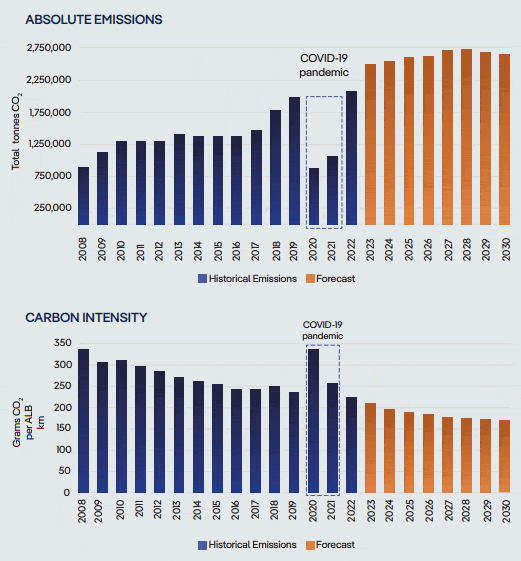
Last year the carbon emissions of MSC's fleet
Cruises, if they increased in absolute terms in line with the
Fleet growth amounting to 2.08 million tonnes
of CO2 compared to 1.06 million in 2021 when activity still
had not fully recovered due to the impact on business
of the COVID-19 pandemic and compared to 1.98 million tonnes
of C02 in 2019 before the onset of the health crisis, are instead
decreased in terms of Available Lower Berth-Kilometers, parameter
which takes into account the kilometres travelled by the fleet and the beds
low available ships as well as days of operation
of ships, the latter being 220 grams CO2/ALB-Km
compared to 235 grams CO2/ALB-Km in 2021 and 231 grams
CO2/ALB-Km in 2019.
This was announced in the Sustainability Report on the
2022 published today by the cruise company that at such
Purpose highlights how the carbon intensity of the fleet
is decreased of -33,5% since 2008, when MSC Cruises operated eight
ships compared to 21 ships at the end of 2022, with the aim of a
reduction of -40% by 2030 to achieve zero
emissions in 2050 compared to 2008.
The report specifies the fuel mix used by ships
of the fleet in 2022 and previous years, recalling that the
last year the cruise passengers hosted on the ships were 14.38
million compared to 4.47 million in 2021 and 19.50 million in the year
pre-pandemic of 2019. Last year the total volume of fuel
consumed by ships was 664 thousand tons, with
increases of +96.6% on 2021 and +4.8% on 2019. In 2022 the
share of HFSO bunkers at high sulfur content was
498 thousand tons (+119.7% on 2021 and -13.5% on 2019), that of
LSFO bunker with low sulfur content of 59 thousand tons (+148.0%
on 2021; fuel not used in 2019), that of marine diesel
MGO of 105 thousand tons (+20.6% on 2021 and +83.0% on 2019) to which
Over a thousand tons of natural gas will be added in 2022
liquefied, fuel not used in previous years.
